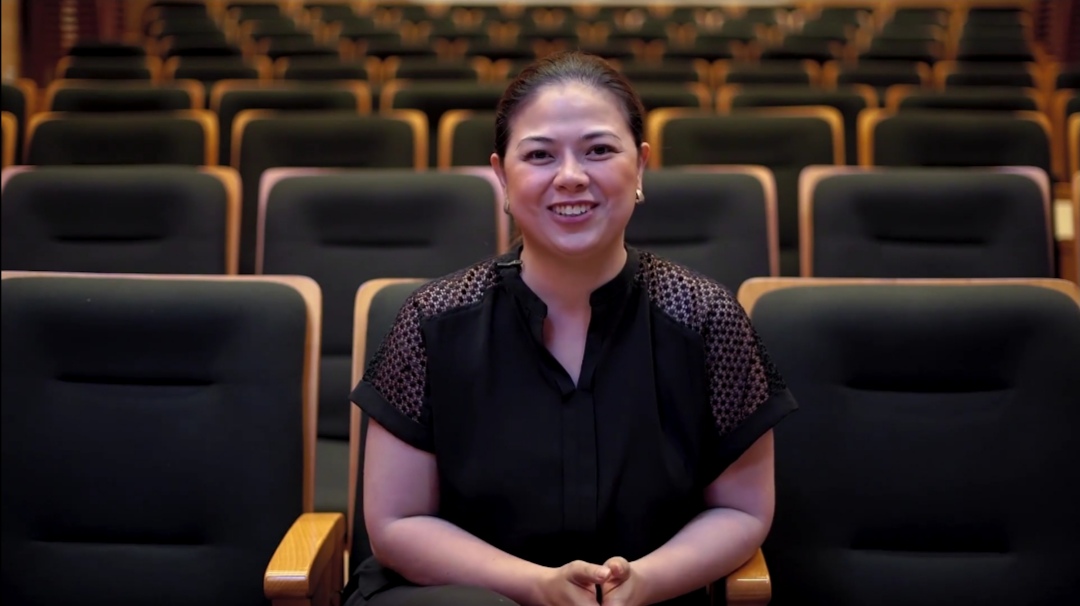Cine Filipina: Representing the story of every Juana

As we highlight women’s achievements and milestones this National Women’s Month, we also put the spotlight on them to further understand and support their journeys as they continue to make significant contributions to society.
Women leaders thrive in the Philippines, with 43 percent in senior management positions, putting the Philippines on top of Grant Thornton International’s 2020 Women in Business survey.
Likewise, the Nikkei Asian Review named the country the most gender-equal country in Asia based on improved wage equality between men and women, increased female educational attainment, and increased women’s political empowerment.
However, despite the country’s efforts to ensure gender equality, the Philippines is among the three most dangerous places for women — together with Indonesia and India — out of 14 Asia-Pacific countries. This is according to the 2019 report of Singaporean research firm ValueChampion, which said violence against women is still a pressing problem.
We definitely need more laws to prevent assault and harassment of women, as well as the stringent enforcement of laws. There is also a need for more significant support for sex education, birth control and healthcare resource provision.
This great gender divide in the country must be brought to the forefront, and it should be prioritized not just during National Women’s Month.
Pushing for gender acceptance and equality has always been part of my vision for the Film Development Council of the Philippines (FDCP), utilizing film as a powerful driving force in enlightening the public about women’s issues and concerns.
In Philippine Cinema, behind every smile, tear, struggle, victory and hope depicted in the narrative is the Filipina’s gentle yet formidable spirit that drives her to courageously stand up for causes, make breakthroughs, and bring about positive societal changes.
The Special Award for Woman Empowerment that the Aliw Awards Foundation, Inc. gave me in 2020 further motivated me to help in sharing the stories of Filipinas through the various programs and initiatives of the national film agency. Ultimately, the voices of Filipinas must be heard, shared, and nurtured to raise public awareness.
PH Cinema for every Juana
Great Cinema is not just entertaining and educational; it is also able to challenge and change people’s opinions and attitudes, sometimes almost instantaneously. This is the aim of the FDCP in holding the ongoing “Cine Filipina: Juana sa Gitna ng Pagbabago” throughout National Women’s Month.
Cine Filipina, held virtually on the FDCP Channel (fdcpchannel.ph), is a showcase of acclaimed feature films and shorts and inspiring talks on gender equality and women empowerment. It was launched on International Women’s Day (March 8) with the one-time free screening of “Insiang” by National Artist for Cinema Lino Brocka.
On March 15, the Cine Filipina Official Opening took place with the free screening of Brocka’s “White Slavery,” while on March 31, the Cine Filipina Official Closing will be capped off by the one-time free screening of “Verdict” by Raymund Ribay Gutierrez.
Cine Filipina offers ten full-length feature films that can be viewed via video-on-demand (VOD) for P99, along with free content such as Cine Filipina talks, limited screenings of the opening and closing films, and short films and panel discussions from the CineMarya Women’s Short Film Festival.
The Cine Filipina film selection, featuring films by female and male directors with unique milieu and treatments, was curated to represent the story of every Juana — her struggles, challenges, triumphs and aspirations.
Brocka’s “Insiang,” “White Slavery,” and “Maynila sa mga Kuko ng Liwanag” depict the hardships that Filipinas had to endure from the 1970s to 1980s. At the same time, “Bagahe” by Zig Dulay, “Chasing Fireflies” by Sheron Dayoc, and “Ang Damgo ni Eleuteria” by Remton Zuasola show how women issues are dealt with in the new millennium.

The late, great Anita Linda in a still from ‘Adela’ by Adolfo Alix, Jr., one of the Cine Filipina featured films.
Varying takes on the realities of older Filipinas are tackled in “Ang Babae sa Likod ng Mambabatok” by Lauren Sevilla Faustino, “Lorna” by Sigrid Andrea Bernardo, and “Adela” by Adolfo Alix, Jr. while “Sonata” by Peque Gallaga and Lore Reyes and “Miss Bulalacao” by Ara Chawdhury show the consequences of women’s decisions on religion, career and motherhood.

Max Eigenmann in a scene from ‘Verdict’ by Raymund Ribay Gutierrez, the closing film of Cine Filipina.
Finally, “Verdict,” a Special Jury Prize awardee in the Horizons (Orizzonti) section of the 2019 Venice International Film Festival, is a forceful narrative on the challenges faced by women in abusive marital relationships, including those who choose to fight back despite the odds.
Encouraging discourse on women empowerment
Cine Filipina will also feature short films and discussions that aim to broaden the public’s understanding of women and their significance in society and the film and audiovisual industry.
From March 20 to 21, CineMarya shorts and panel discussion replays will be shown for free. CineMarya is an initiative of the Department of the Interior and Local Government (DILG) in partnership with the FDCP, Quezon City Film Development Council, and Philippine Commission on Women.
Two CineMarya Film Talks from the 2020 Pista ng Pelikulang Pilipino (PPP) will be featured — “Women in Philippine Cinema” moderated by producer Armi Cacanindin and “Women in Public Service” moderated by Issa Litton.
“Women in Philippine Cinema” focuses on the journeys of editors Tara Illenberger and Ilsa Malsi, producers Pamela Reyes and Ria Limjap, and director and cinematographer Lee Briones-Meily as they continue to make their mark in Phillippine Cinema.
In “Women in Public Service,” I spoke about my experience of being a woman public servant alongside DILG Undersecretary Marjorie Jalosjos, Quezon City Mayor Joy Belmonte, and Movie and Television Review and Classification Board (MTRCB) Chairperson Rachel Arenas.
On the following weekend, two FDCP Film Talks on Cine Filipina will be streamed live from 6 p.m. to 7:15 p.m. on the FDCP’s YouTube channel and Facebook pages to make it accessible not just for Cine Filipina subscribers but also for audiences worldwide.
On March 27, “Si Juana at ang Lockdown” will feature the pandemic experiences of women in the film industry’s vulnerable and marginalized sectors such as cinema checkers, extras, production assistants, wardrobe mistresses, technical crew members, and other daily wage earners. On March 28, “Women Artists in Lockdown” will focus on art, womanhood, and the lockdown, along with the works that were made as a response to the pandemic situation.
A tribute to the strong Filipina spirit
Through Cine Filipina, we hope to further women’s rights and welfare through online film screenings and events. The pride and honor of womanhood is forever enshrined in the Cine Filipina films, and the milestones of Filipina filmmakers and public servants are highlighted by the Cine Filipina events.
The FDCP’s efforts to promote women empowerment and gender equality will not end with Cine Filipina’s closing by the end of this month. Throughout the year, the national film agency will continue to showcase and help develop more gender-centric films to inspire Filipino audiences to join the movement towards equality and fair regard for women and men alike.
Notes from the Chair is part of the Arts Awake section of The Sunday Times Magazine published by The Manila Times. Click HERE to view the article on The Manila Times website.




